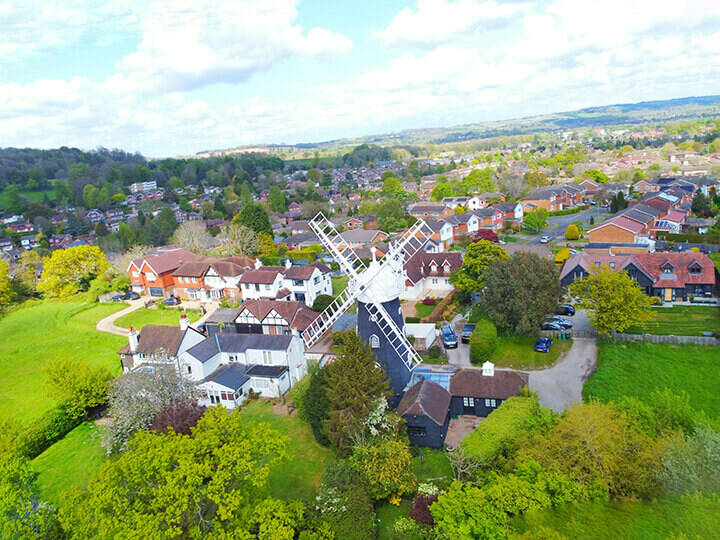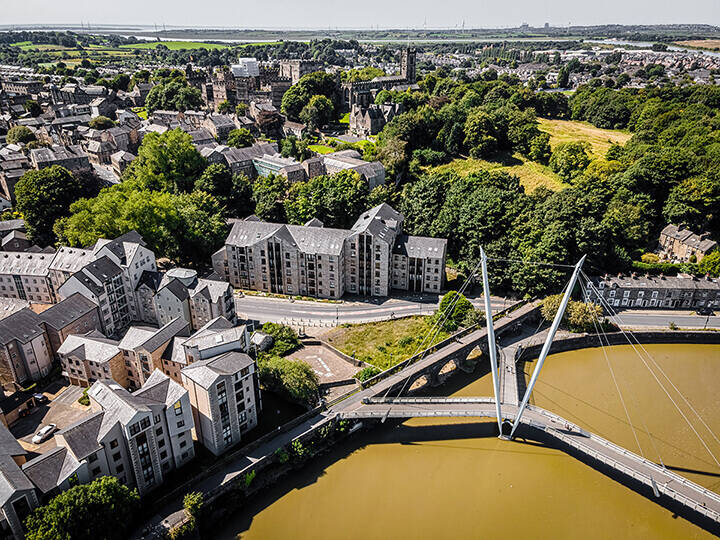Exemplar Award Winner- Winner NLPG NSG Exemplar Award ‘Financial Award’ 2010: London Borough of Harrow
Best example of saving money using the NLPG/LLPG or the NSG/LSG
Large capital spend requires a compelling business case and in Waste Management the drive to increase recycling and to reduce the amount of waste sent to landfill provides just that. At the London Borough of Harrow a comprehensive project that deals with the overhaul of every aspect of its waste and recycling provision is already promising £3.2m of savings over the next decade.
Over £2.6m of that figure is due to an 18.8% reduction in land fill that the project is already delivering. This headline figure is impressive and is made even more so by a recycling rate for household waste of 44%.
The systems introduced to bring about these changes are entirely underpinned by the council’s LLPG. The Waste Management system, with its mobile wireless extension in vehicle cabs, is linked to the call centre CRM. Both receive updates from the LLPG every 24 hours. Web forms on the ‘MyHarrow’ web portal are also linked to the CRM and the Waste Management system and are facilitated by the LLPG. This seamless integration has many benefits, not only to the citizen but also in terms of cashable savings and efficiencies.
Outcomes
The Waste Management system handles three bin types for each property: recycled waste, general waste and organic waste, each linked to a Unique Property Reference Number (UPRN). Route optimisation has made the rounds more efficient, leading to a 15% fuel reduction valued at £11,000 in the first year alone. In a fast growing borough like Harrow, with a number of new developments, the accuracy of the LLPG will be vital in maintaining and increasing these levels of service efficiency.
The mobile wireless part of the system has introduced other efficiencies too, especially in recording and responding to non-collection, which is now a simple one click affair on the in-cab touch screen device. This has completely eliminated the need for paper forms used to record non-collection in the past. The system refreshes every three minutes so that staff in the customer contact centre can see the reason for non-collection, such as ‘bin contamination’, and then inform anyone who calls in to complain. Very often it is possible for a missed collection to be rectified during the call if crews are still in the vicinity. Previously, staff would have had to sift through the paper forms and then phone the customer back.
Citizens can also report non-collection and other waste and recycling problems via the borough’s web site. Use of the web is growing, with transactions via this channel making up nearly 60% of the total as the people of Harrow choose to self-serve, thus delivering further efficiencies.
In the Access Harrow call centre, there has already been a noticeable change, with overall call volumes down by 3%, those associated with the environment down by 7%, and those specifically to do with missed bins down by 25%. These amount to over 200 fewer calls per week, with 95% of remaining calls being resolved at first contact. Furthermore, the number of outbound follow-up calls has been slashed by 95%. Call duration has also been cut by 45 seconds on each average 248 second call. Costs, too, have been reduced significantly from £2.23 per enquiry in 2006/7 to £0.82 in 2009/10.
In areas where there are a significant number of non-collections, the council has initiated an outreach programme. Council officers visit the area, knock on doors and explain the principles behind the waste and recycling collection, helping people to understand how and why the system works in the way it does. Informed customers will then help to contribute towards the success of the scheme and further cost savings.
A Chartered Institute of Public Finance and Accounting study has reported that Harrow’s waste and recycling service was high performing in this area. The borough has also been the recipient of three national IT awards, leading it to be benchmarked by other local authorities as a leader in this area.
Key benefits
- LLPG underpins the project which will deliver £3.2m savings over 10 years
- Reduced the amount of waste going to landfill by 18.8%
- Recycling rate raised by 3% overall
- Much improved Waste and Recycling service for citizens
- Joined up response to citizen waste enquiries and improved call centre complaint handling
- Considerable channel shift as citizens choose to self-serve via the web
- Efficiencies and savings achieved through LLPG integration Council now rated as high performing and benchmarked as a leader in waste and recycling
- In addition to this Exemplar Award the Harrow Waste and Recycling system has received three national IT awards:
- Professional Planning Forum Guardian Newspaper National eGov awards
View from the authority
“The council’s Waste and Recycling service is used as a benchmark by other local authorities and we are particularly proud of the savings that are already being made. Of course, all the systems put in place to deliver these changes are underpinned by our LLPG, which provides the links between the Waste Management System, the CRM and the ‘My Harrow’ web portal. As well as projected savings of over £3.2m over 10 years, we are seeing improvements in recycling rates and a reduction in the number of waste related calls received by our call centre: in other words, improvements all round.”
-Jonathan Milbourn, Head of Access Harrow, London Borough of Harrow



